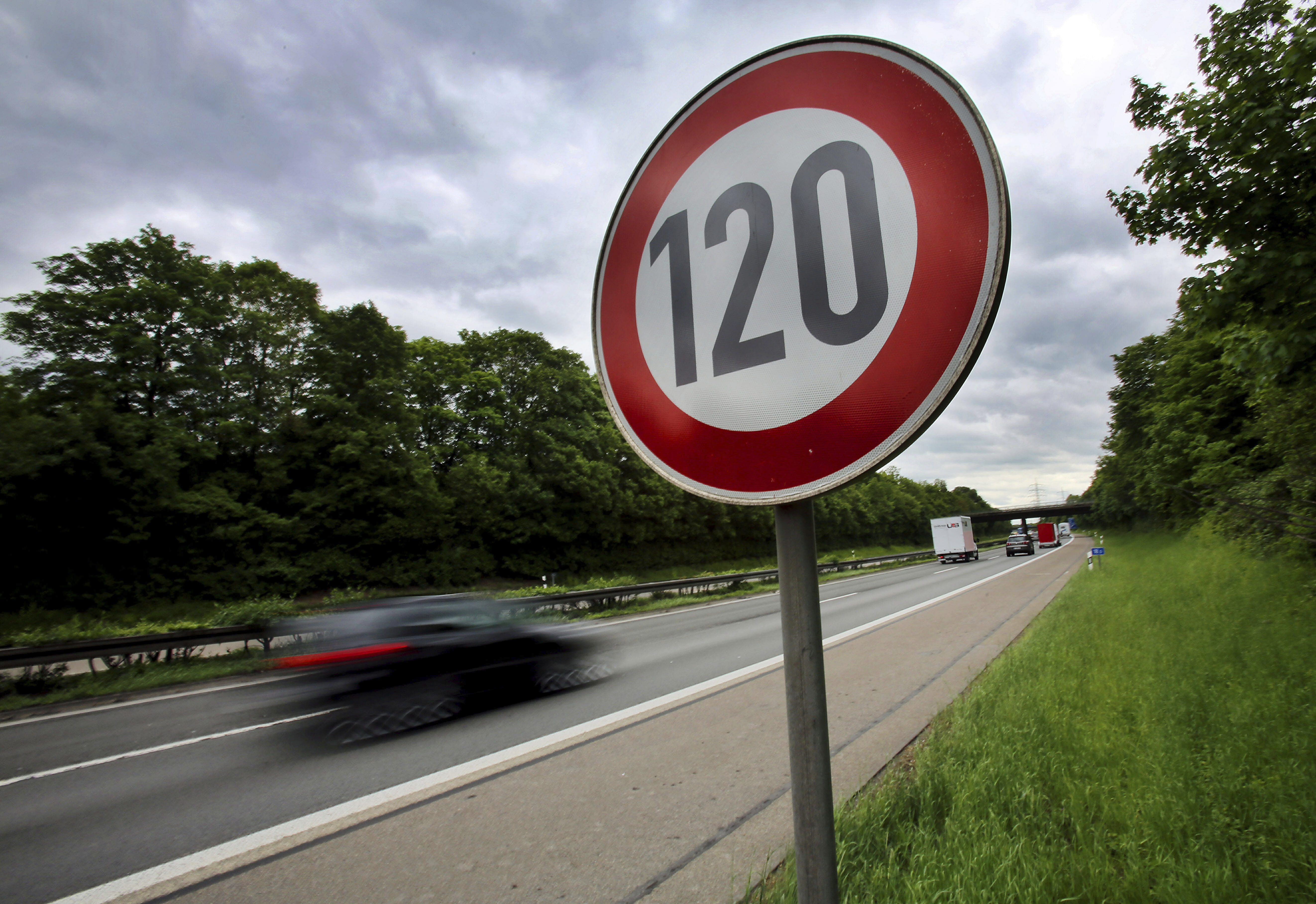
EU officials approve speed limit technology for autos
FRANKFURT, Germany (AP) — The European Union is moving to require cars and trucks to have technology that would deter speeding as well as data recorders to document the circumstances of accidents.
Those are among the safety features included in a provisional agreement announced Wednesday by the EU’s executive commission.
The package would force vehicles to have so-called intelligent speed assistance, which recognizes speed limits using mapping systems and help drivers observe them by restricting engine power. The driver can override the system by pushing harder on the gas pedal. Earlier versions of the measure envisioned a system that could not be overridden, but that was changed.
The onboard data recorder would further deter speeding by registering the car’s speed.
“Every year 25,000 people lose their lives on our roads,” said Elzbieta Bienkowska, the European Commissioner responsible for internal market and industry. “We can and must act to change this.”
The European Commission, the executive arm of the 28-country EU, said that the features would be required on all vehicles on European roads from 2022.
The other safety features would include systems to warn drivers if they seem drowsy and against distractions such as smartphone use. Cameras and sensors would be required to avoid accidents while backing up and to help keep a car in a lane. For cars and vans, the deal requires advanced emergency braking, which can detect obstacles and push the brake pedal if the driver does not responds in time.
And another system would help bus and truck drivers avoid hitting cyclists in their so-called blind spots. Although properly adjusted mirrors should allow truck drivers to see to the side, Germany’s transport ministry has pushed for the measure to reduce deaths of cyclists and pedestrians.
Much of the technology already exists and is available on more expensive cars.
The European Automobile Manufacturers’ Association welcomed the EU’s agreement but said vehicle technology needed to be supplemented with better road infrastructure and measures to encourage safer driver behavior.
“This challenging piece of legislation will no doubt be instrumental in further improving road safety – something all auto makers are fully committed to,” said ACEA Secretary General Erik Jonnaert. “At the same time vehicle technology alone will not be sufficient. For maximum effect, policy makers must now push for a fully integrated approach to road safety; combining vehicle technology with better road infrastructure and safer driver behavior.”
The association warned in December that intelligent speed assistance should be introduced only gradually. It said the technology was hampered by too many false readings due to out-of-date maps and poor sign visibility.
The measures announced Wednesday were agreed on in negotiations between European national governments, the commission, and the European parliament. The provision political agreement is subject to formal approval by the European parliament and EU leaders.
The Western Journal has not reviewed this Associated Press story prior to publication. Therefore, it may contain editorial bias or may in some other way not meet our normal editorial standards. It is provided to our readers as a service from The Western Journal.
Truth and Accuracy
We are committed to truth and accuracy in all of our journalism. Read our editorial standards.
Advertise with The Western Journal and reach millions of highly engaged readers, while supporting our work. Advertise Today.












